
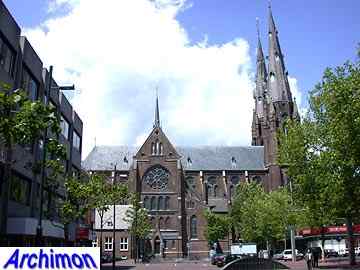 This church is probably the
highlight in the first period of P.J.H. Cuypers'
long and fruitful career. It's a three-aisled cruciform basilican
church with a three-aisled transept and a choir with an ambulatory and
three hexagonal radiating chapels. At the front the church has three
connected porches and two differently detailed towers. Its design was
based on 13th-century French Gothic churches, especially those of
Chartres and Reims. The church replaced a derelict medieval church.
This church is probably the
highlight in the first period of P.J.H. Cuypers'
long and fruitful career. It's a three-aisled cruciform basilican
church with a three-aisled transept and a choir with an ambulatory and
three hexagonal radiating chapels. At the front the church has three
connected porches and two differently detailed towers. Its design was
based on 13th-century French Gothic churches, especially those of
Chartres and Reims. The church replaced a derelict medieval church.
For this church Cuypers used many of the ideas about symbolism in
Gothicism, published by J.A. Alberdingk Thijm, Cuypers' friend and
future brother-in-law and one of the leading members in the movement
for equal rights for catholics. In one important aspect Cuypers does
not follow these ideas; the church is not oriented, which means that
the choir is not built at the eastern part of the church. The
difference between the two towers is an idea that Cuypers did follow.
Both towers are 70 metres tall. Alberdingk Thijm was convinced that a
long lost secret symbolism was the reason behind the difference between
the two towers, as seen on many French Gothic churches. For this church
Cuypers designed two different towers. The southern tower is the more
refined of the two and represents the Ivory Tower, symbol of the purity
of Mary. The northern tower is decorated with turrets and battlements;
this 'defensive' look represents the Tower of David, symbol of
strength. It is nowadays widely believed that the difference between
the towers of medieval churches was caused by financial reasons more
than anything else, so Alberdingk Thijm was probably wrong. More
symbolism is found in the many rose-windows, referring to St.
Catharina, whose attribute is a wheel.
The porches are decorated with sculptures, executed in natural stone.
Unfortunately, some of this ornamenture must now be protected from
vandalism by screening. Perhaps a problem caused by the attitude of
local politicians? After all, Eindhoven has a long history of contempt
for anything of artistic or historic value. Not a very good example for
youngsters, to say the least.
In 1942 the church was heavily damaged by bombs, and was restored after
the war by architect C.H.
de Bever.
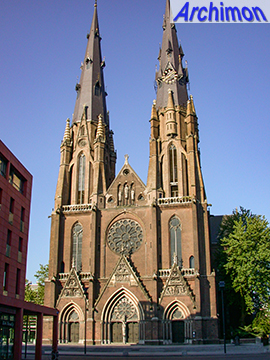
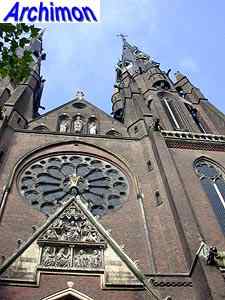
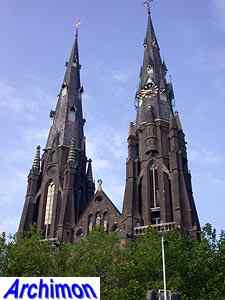
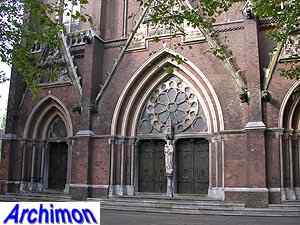
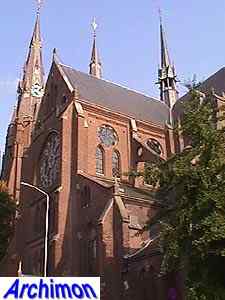
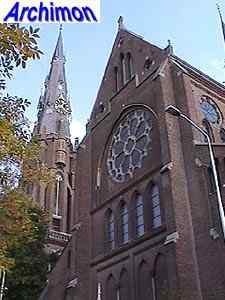
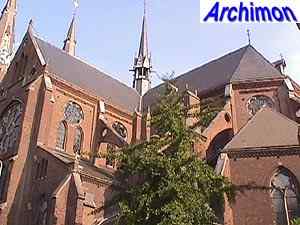
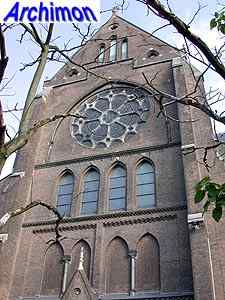
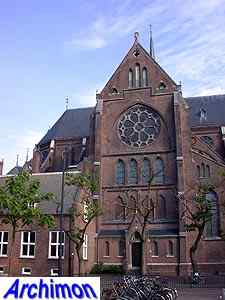
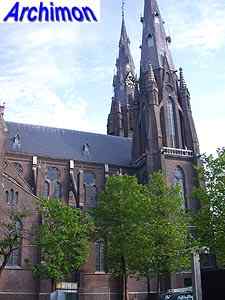
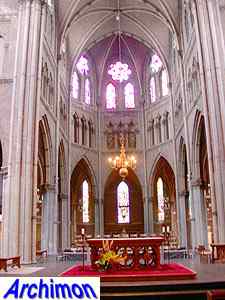
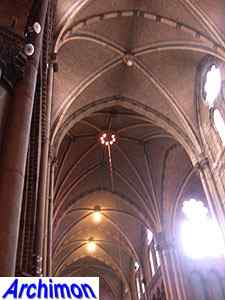
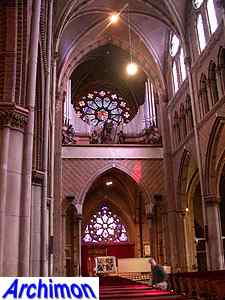
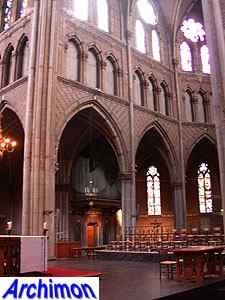
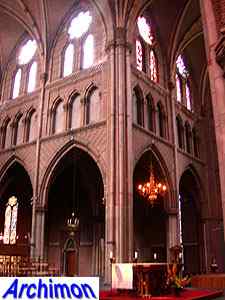
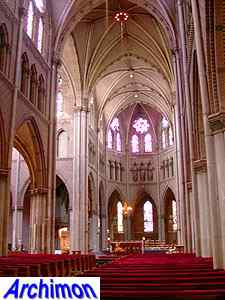
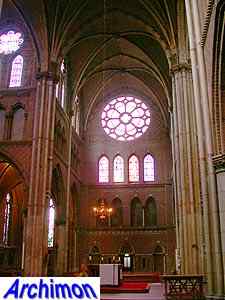
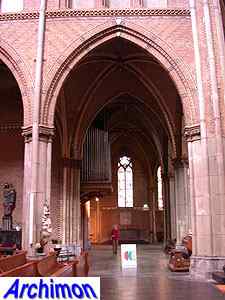
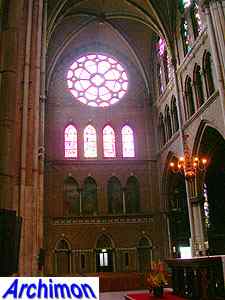
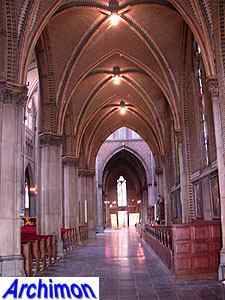
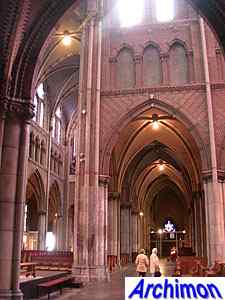
Back to Eindhoven
Back to P.J.H. Cuypers